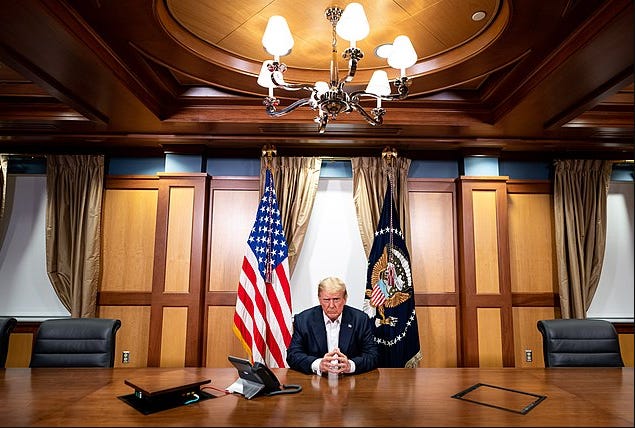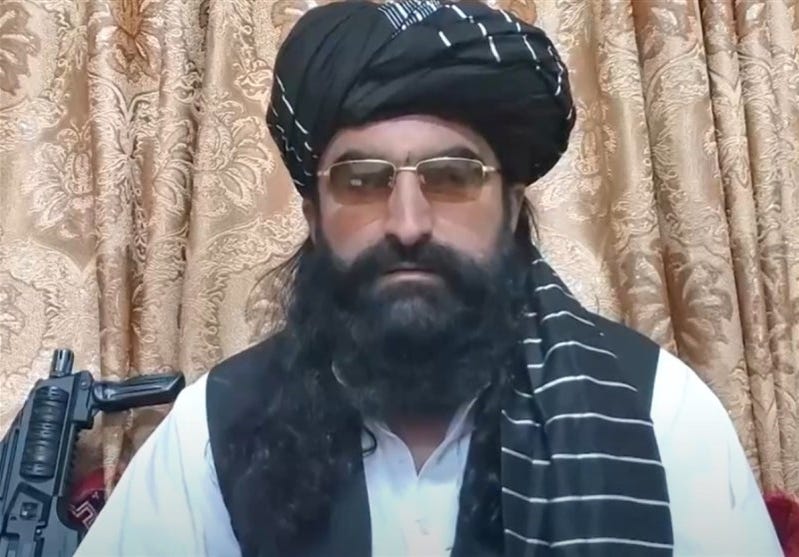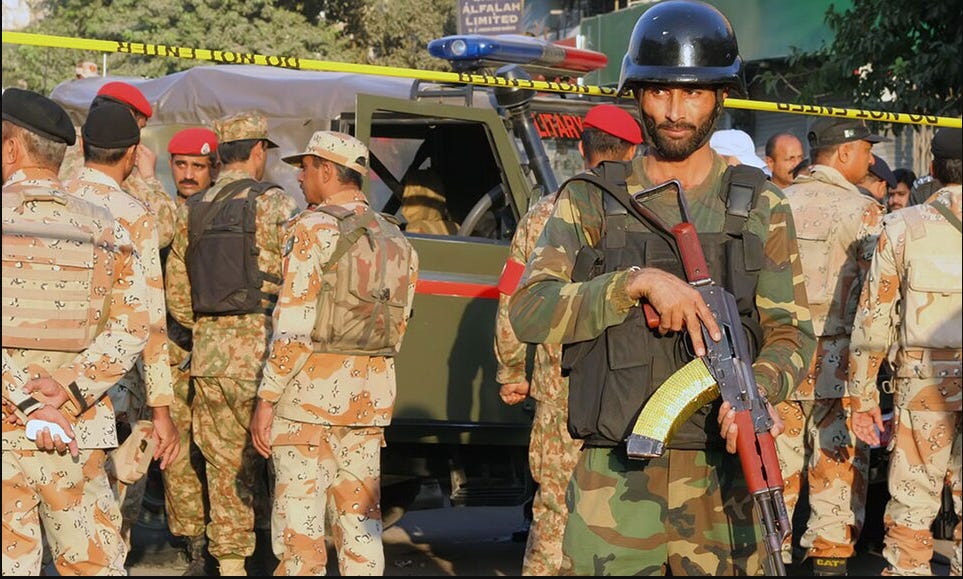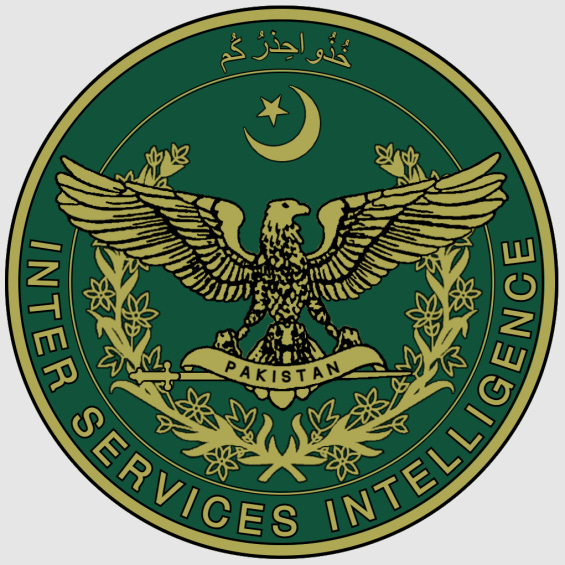The Case for Prioritizing Pakistan’s Denuclearization
Pakistan's Nuclear Arsenal Is a Problem

(GCV Note: It’s my honor to introduce LTG Haibatullah Alizai, former Special Operations Corps Commander and Chief of General Staff, new column “Memo From the General”)
In recent weeks, the phrase “escalation of nuclear war” has gained significant attention, with President Donald Trump referencing it twice within the past month. Most notably, during his meeting with NATO Secretary General Mark Rutte on March 13, 2025, at the White House, this issue was raised in discussions about global security.
The Trump administration has reiterated its commitment to initiating nuclear arms control negotiations, beginning with Russia and expanding to include other nuclear-armed nations such as China, India, and Pakistan. This initiative reflects a continuation of policies from Trump’s first term, where the emphasis was placed on reducing the economic burden of maintaining weapons of mass destruction (WMDs) and reallocating resources toward national economic development.
While this approach holds significant promise for global stability, prioritizing specific threats remains crucial. Major nuclear powers such as Russia and China, despite being geopolitical rivalries, maintain robust command and control systems that ensure a high degree of security over their nuclear arsenals. In contrast, Pakistan presents a far more immediate concern due to its internal instability and the rising influence of extremist groups.
The possibility of nuclear weapons falling into the hands of non-state actors poses a possible existential threat to the United States and its allies, making Pakistan’s nuclear security a priority in global arms control efforts.
The Threat of Pakistan’s Nuclear Instability
Pakistan’s nuclear program, initially developed as a deterrent against India, has evolved into a significant security concern due to the country’s internal volatility. With an estimated 170 nuclear warheads and a growing arsenal of ballistic missiles, Pakistan’s nuclear capabilities continue to expand. However, its internal security situation has deteriorated significantly in recent years. Extremist groups such as Tehrik-i-Taliban Pakistan (TTP) and other radical factions have intensified attacks against Pakistan’s military and civilian institutions, raising concerns about the safety of its nuclear assets.
There are two prevailing theories regarding Pakistan’s nuclear security: The first is something akin to a “Deliberate Conspiracy.” Some analysts argue that Pakistan, anticipating international pressure for denuclearization, is deliberately exaggerating the presence of terrorist threats. By portraying itself as a victim, Pakistan could be attempting to divert attention from its nuclear ambitions while creating an environment where extremist groups could potentially acquire nuclear capabilities.
The second theory is akin to a “Genuine Existential Threat.” Other analysts contend that Pakistan is genuinely struggling to contain terrorism and that the growing instability within its borders poses a real and imminent threat to its nuclear arsenal. With terrorist organizations gaining strength and increasing their attacks on military installations, there is a legitimate risk that nuclear materials or weapons could fall into the wrong hands.
Regardless of which theory holds more weight, the undeniable reality is that Pakistan’s nuclear weapons are at risk. Unlike Russia, China, or even North Korea, which operate under centralized and highly controlled nuclear programs, Pakistan’s internal security crisis creates vulnerabilities that must not be ignored.
The Global Implications of a Nuclear Security Breach in Pakistan

The potential fallout from a nuclear security breach in Pakistan extends far beyond South Asia. If nuclear weapons or fissile materials were to be seized by extremist groups, the consequences could be catastrophic. A terrorist organization with access to atomic technology could launch an attack not only on regional adversaries such as India but also on Western nations, including the United States.
The risk extends beyond direct missile strikes—radiological attacks, also known as “dirty bombs,” could be used to create widespread panic and destruction. Recent developments, such as Pakistan’s ballistic missile test conducted a few months ago, further highlight the urgency of this threat. While Pakistan’s official stance is that its nuclear arsenal remains secure, the increasing instability within the country raises serious doubts.
The possibility of nuclear weapons being compromised poses a direct threat not only to the United States but also to key allies such as India and Israel. Given these concerns, the U.S. and NATO must take proactive measures to mitigate the risks associated with Pakistan’s nuclear capabilities. While the Trump administration’s broader atomic arms control strategy includes budding geopolitical rivals like Russia and China, Pakistan should be at the forefront of immediate U.S. security efforts.
The West Can No Longer Wait
The threat posed by Pakistan’s nuclear arsenal cannot be ignored. While broader disarmament negotiations with Russia and China are essential for long-term global stability, the immediate and unpredictable danger lies in Pakistan’s internal vulnerabilities. The Trump administration and its NATO allies must act decisively to address this issue before it escalates beyond control. A nuclear catastrophe—whether through unauthorized use, theft, or deliberate attacks—would have irreversible consequences, making preemptive action a strategic necessity.
As the world grapples with the complexities of nuclear security, Pakistan’s instability serves as a stark reminder that the greatest threats may not always come from superpower rivalries but rather from fragile states where atomic weapons exist amidst internal chaos. Addressing this issue now could prevent a crisis that, once triggered, may be impossible to contain.






Thanks for this excellent analysis. I just wrote about this yesterday and alluded to this vey scenario at the end of the article. I tried not say the quiet part out loud, but you’ve done that in a perfect way that doesn’t sound alarmist but also raises the urgency of the matter. Well done! I put the link to my article below in case you wanted to read it.
https://open.substack.com/pub/geopolitigal/p/how-a-dot-becomes-a-line-ed1?r=3ekznf&utm_medium=ios
Since the DOGE firings of nuclear weapons controllers in the U.S. I would not expect the U.S. to take a dominant role in securing the nuclear weapons of other nations. America First, yay.